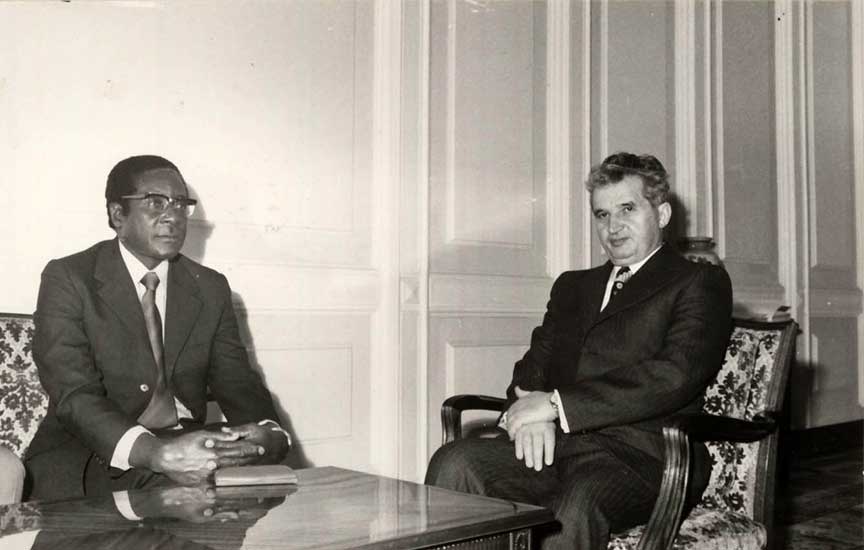1989 Deposed in Romania

Ceausecu with Mugabe 1976
Demonstration broke out in Romania. The Romanian secret service fired on demonstrators, but before long regular army troops turned on member of the Securiat, resulting in a brief civil war, and the ouster of the regime. Ceausecu was tried and executed on December 25, 1989. He was the only former Communist leader of Eastern Europe to meet such a fate. .
The Romanian Revolution began in mid-December 1989, with protests erupting in the city of Timișoara, where citizens demonstrated against the forced eviction of a popular local pastor, László Tőkés. The protests quickly gained momentum and evolved into a broader movement against Ceaușescu's regime. Demonstrators began to call for his resignation and an end to the oppressive communist rule.
On December 22, 1989, after days of intensifying protests, the tide turned against Ceaușescu. He attempted to address a mass rally in Bucharest's Palace Square, but the crowd turned against him, jeering and booing. The situation quickly escalated, and security forces clashed with protesters, leading to further violence and chaos.
Ceaușescu and his wife, Elena, fled the capital in a helicopter as the protests turned into a full-blown revolution. They were soon captured by the military and held in a military facility in Târgoviște. During their detention, they were subjected to a hastily arranged trial, where they were accused of crimes including corruption, genocide, and abuse of power.
On December 25, 1989, following a trial that lasted only a few hours, Nicolae and Elena Ceaușescu were found guilty and sentenced to death. They were executed by a firing squad shortly afterward, marking the end of their rule and the beginning of a new era for Romania.
 >
>